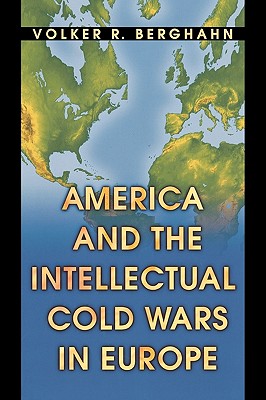

 Princeton University Press
Princeton University Press
America and the Intellectual Cold Wars in Europe


Key Metrics
- Volker R Berghahn
- Princeton University Press
- Paperback
- 9780691102566
- 9.18 X 6.3 X 0.95 inches
- 1.25 pounds
- Political Science > International Relations - General
- English
 Secure Transaction
Secure TransactionBook Description
In 1958, Shepard Stone, then directing the Ford Foundation's International Affairs program, suggested that his staff measure America's cultural impact in Europe. He wanted to determine whether efforts to improve opinions of American culture were yielding good returns. Taking Stone's career as a point of departure and frequent return, Volker Berghahn examines the triangular relationship between the producers of ideas and ideologies, corporate America, and Washington policymakers at a peculiar juncture of U.S. history. He also looks across the Atlantic, at the Western European intellectuals, politicians, and businessmen with whom these Americans were in frequent contact. While shattered materially and psychologically by World War II, educated Europeans did not shed their opinions about the inferiority, vulgarity, and commercialism of American culture. American elites--particularly the East Coast establishment--deeply resented this condescension. They believed that the United States had two culture wars to win: one against the Soviet Bloc as part of the larger struggle against communism and the other against deeply rooted negative views of America as a civilization. To triumph, they spent large sums of money on overt and covert activities, from tours of American orchestras to the often secret funding of European publications and intellectual congresses by the CIA.
At the center of these activities were the Ford Foundation, the Congress for Cultural Freedom, and Washington's agents of cultural diplomacy. This was a world of Ivy League academics and East Coast intellectuals, of American philanthropic organizations and their backers in big business, of U.S. government agencies and their counterparts across the Atlantic. This book uses Shepard Stone as a window to this world in which the European-American relationship was hammered out in cultural terms--an arena where many of the twentieth century's major intellectual trends and conflicts unfolded.
Author Bio
Volker Berghahn, Seth Low Professor of History, specializes in modern German history and European-American relations. He received his M.A. from the University of North Carolina, Chapel Hill (1961) and his Ph.D. from the University of London (1964).
He taught in England and Germany before coming to BrownUniversity in 1988 and to Columbia ten years later.
His publications include: America and the Intellectual Cold Wars in Europe (2001); Quest for Economic Empire (ed., 1996); Imperial Germany(1995); The Americanization of West German Industry, 1945-1973 (1986); Modern Germany (1982); Der Tirpitz-Plan (1971); Europe in the Era of Two World Wars (2006); and most recently Industriegesellschaft und Kulturtransfer, Goettingen (2010).
- Awards
Fellow, Royal Historical Society, England
Order of Merit, First Class, Federal Republic of Germany
Honorary Professor, University of Warwick
Fellow, Wissenschaftszentrum, Berlin
Helmut-Schmidt Prize of ZEIT Foundation
Source: Columbia University Department of History
Videos
No Videos
Community reviews
Write a ReviewNo Community reviews